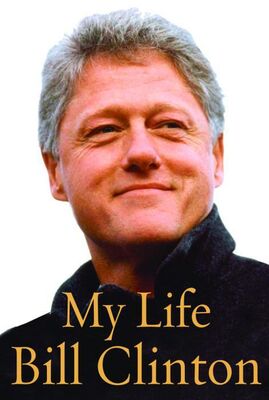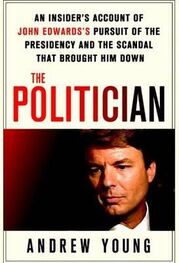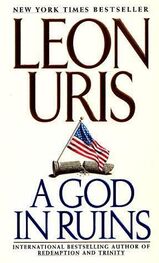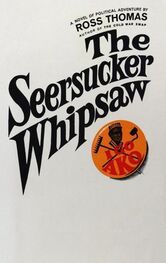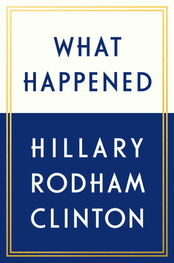The next day President-elect Bush came to the White House for the same meeting I had had with his father eight years earlier. We talked about the campaign, White House operations, and national security. He was putting together an experienced team from past Republican administrations who believed that the biggest security issues were the need for national missile defense and Iraq. I told him that based on the last eight years, I thought his biggest security problems, in order, would be Osama bin Laden and al Qaeda; the absence of peace in the Middle East; the standoff between nuclear powers India and Pakistan, and the ties of the Pakistanis to the Taliban and al Qaeda; North Korea; and then Iraq. I said that my biggest disappointment was not getting bin Laden, that we still might achieve an agreement in the Middle East, and that we had almost tied up a deal with North Korea to end its missile program, but that he probably would have to go there to close the deal.
He listened to what I had to say without much comment, then changed the subject to how I did the job. My only advice was that he should put together a good team and try to do what he thought was right for the country. Then we talked a little more politics.
Bush had been a very adept politician in 2000, building a coalition with moderate rhetoric and quite conservative-specific proposals. The first time I had seen him give his “compassionate conservative” speech in Iowa, I knew he had a chance to win. After the primaries he was badly positioned way out on the right and behind in the polls, but he had walked back to the center by moderating his rhetoric, urging the Republican Congress not to balance the budget on the backs of the poor, and even supporting my position on a couple of foreign policy issues. When he was governor, his conservatism had been leavened by the need to work with a Democratic state legislature and by the support he had received from Democratic lieutenant governor Bob Bullock, who wielded a lot of the day-to-day power under the Texas system. Now he would govern with a conservative Republican Congress. He had to choose his own way. After our meeting I knew he was fully capable of getting his way, but I couldn’t tell whether it would be the path he had followed as governor or the one he had taken to defeat John McCain in the South Carolina primary.
December 23 was a fateful day for the Middle East peace process. After the two sides had been negotiating again for several days at Bolling Air Force Base, my team and I became convinced that unless we narrowed the range of debate, in effect forcing the big compromises up front, there would never be an agreement. Arafat was afraid of being criticized by other Arab leaders; Barak was losing ground to Sharon at home. So I brought the Palestinian and Israeli teams into the Cabinet Room and read them my “parameters” for proceeding. These were developed after extensive private talks with the parties separately since Camp David. If they accepted the parameters within four days, we would go forward. If not, we were through.
I read them slowly so that both sides could take careful notes. On territory, I recommended 94 to 96 percent of the West Bank for the Palestinians with a land swap from Israel of 1 to 3 percent, and an understanding that the land kept by Israel would include 80 percent of the settlers in blocs. On security, I said Israeli forces should withdraw over a three-year period while an international force would be gradually introduced, with the understanding that a small Israeli presence in the Jordan Valley could remain for another three years under the authority of the international forces. The Israelis would also be able to maintain their early-warning station in the West Bank with a Palestinian liaison presence. In the event of an “imminent and demonstrable threat to Israel’s security,” there would be provision for emergency deployments in the West Bank.
The new state of Palestine would be “nonmilitarized,” but would have a strong security force; sovereignty over its airspace, with special arrangements to meet Israeli training and operational needs; and an international force for border security and deterrence.
On Jerusalem, I recommended that the Arab neighborhoods be in Palestine and the Jewish neighborhoods in Israel, and that the Palestinians should have sovereignty over the Temple Mount/Haram and the Israelis sovereignty over the Western Wall and the “holy space” of which it is a part, with no excavation around the wall or under the Mount, at least without mutual consent. On refugees, I said that the new state of Palestine should be the homeland for refugees displaced in the 1948 war and afterward, without ruling out the possibility that Israel would accept some of the refugees according to its own laws and sovereign decisions, giving priority to the refugee populations in Lebanon. I recommended an international effort to compensate refugees and assist them in finding houses in the new state of Palestine, in the land-swap areas to be transferred to Palestine, in their current host countries, in other willing nations, or in Israel. Both parties should agree that this solution would satisfy UN Security Council Resolution 194.
Finally, the agreement had to clearly mark the end of the conflict and put an end to all violence. I suggested a new UN Security Council resolution saying that this agreement, along with the final release of Palestinian prisoners, would fulfill the requirements of resolutions, 242 and 338. I said these parameters were nonnegotiable and were the best I could do, and I wanted the parties to negotiate a final status agreement within them. After I left, Dennis Ross and other members of our team stayed behind to clarify any misunderstanding, but they refused to hear complaints. I knew the plan was tough for both parties, but it was time—past time—to put up or shut up. The Palestinians would give up the absolute right of return; they had always known they would have to, but they never wanted to admit it. The Israelis would give up East Jerusalem and parts of the Old City, but their religious and cultural sites would be preserved; it had been evident for some time that for peace to come, they would have to do that. The Israelis would also give up a little more of the West Bank and probably a larger land swap than Barak’s last best offer, but they would keep enough to hold at least 80 percent of the settlers. And they would get a formal end to the conflict. It was a hard deal, but if they wanted peace, I thought it was fair to both sides.
Arafat immediately began to equivocate, asking for “clarifications.” But the parameters were clear; either he would negotiate within them or not. As always, he was playing for more time. I called Mubarak and read him the points. He said they were historic and he could encourage Arafat to accept them. On the twenty-seventh, Barak’s cabinet endorsed the parameters with reservations, but all their reservations were within the parameters, and therefore subject to negotiations anyway. It was historic: an Israeli government had said that to get peace, there would be a Palestinian state in roughly 97 percent of the West Bank, counting the swap, and all of Gaza, where Israel also had settlements. The ball was in Arafat’s court.
I was calling other Arab leaders daily to urge them to pressure Arafat to say yes. They were all impressed with Israel’s acceptance and told me they believed Arafat should take the deal. I have no way of knowing what they told him, though the Saudi ambassador, Prince Bandar, later told me he and Crown Prince Abdullah had the distinct impression Arafat was going to accept the parameters. On the twenty-ninth, Dennis Ross met with Abu Ala, whom we all respected, to make sure Arafat understood the consequences of rejection. I would be gone. Ross would be gone. Barak would lose the upcoming election to Sharon. Bush wouldn’t want to jump in after I had invested so much and failed. I still didn’t believe Arafat would make such a colossal mistake. The previous day I had announced that I would not travel to North Korea to close the agreement banning its production of long-range missiles, saying I was confident the next administration would consummate the deal based on the good work that had been done. I hated to give up on ending the North Korean missile program. We had stopped their plutonium and missile testing programs, and had refused to deal with them on other issues without involving South Korea, setting the stage for Kim Dae Jung’s “sunshine policy.” Kim’s brave outreach offered more hope for reconciliation than at any time since the end of the Korean War, and he had just been awarded the Nobel Peace Prize for it. Madeleine Albright had made a trip to North Korea and was convinced that if I went, we could make the missile agreement. Although I wanted to take the next step, I simply couldn’t risk being halfway around the world when we were so close to peace in the Middle East, especially after Arafat had assured me that he was eager for an agreement and had implored me not to go.
Читать дальше